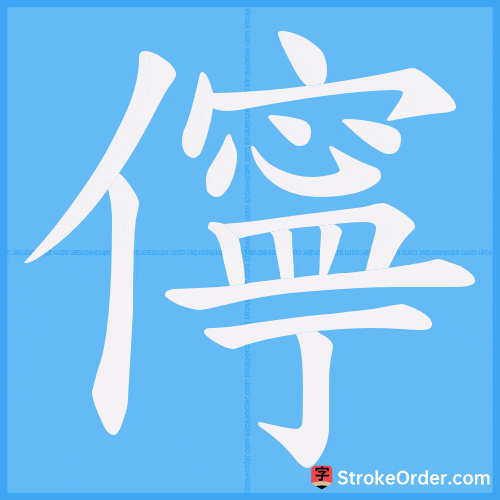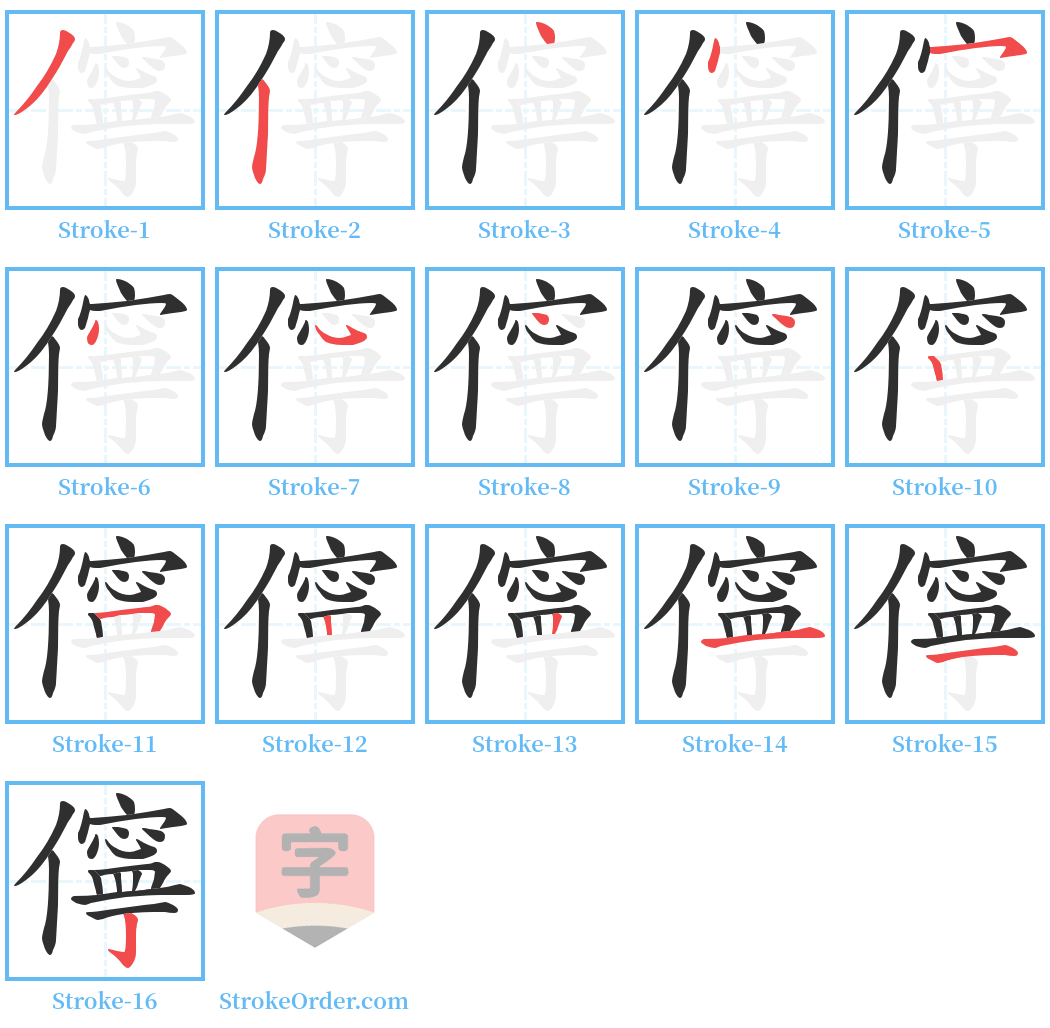儜 Stroke Order
Animated Stroke Order of 儜
Stroke Order Diagrams for 儜
Information of 儜
Pinyinníng
Radical
亻
Strokes
16 strokes
Usage
★★
Definition
儜 [níng]形 (Adjective)1. 怯懦 (weak); a timid and weak person.2. 旧同“您” (you); more commonly seen in early vernacular contexts. Examples:- 如:儜劣 (timid and inferior); 儜弱 (timid and weak).1. 怯弱 (weak); denotes someone who is lacking in strength or courage. 引: 唐·元稹《当日来大难行》:大牛竖,小牛横,鸟啄牛背,足跌力儜。 2. 困顿 (tired); describes a state of fatigue or exhaustion.3. 粗劣 (bad); used to describe something of poor quality. Examples: - 如: 儜奴 (a derogatory term for a worthless servant); 儜拙 (clumsy or incompetent); 儜陋 (ugly); 儜儿 (derogatory term for a weak person or coward).4. 代词 (Pronoun); used to respectfully address someone as "you" (您). 引: 《老残游记》:昨日龙叔不说吗? 儜早去也是没有。 (Didn’t Uncle Long say yesterday? It’s no use for you to go early.)弱小、软弱 (weak and small). Example from 《宋书·卷六二·王微传》: 「吾本儜人,加疹意惛,一旦闻此,便惶怖矣。」 (I was originally a weak person; after developing a rash, hearing this suddenly made me panic.)用于尊称他人 (used to respectfully address others).Example from 《老残游记·第一二回》: 「今日总算他乡遇故知,儜也该做首诗,我们拜读拜读。」 (Today we finally meet an old acquaintance in a foreign land; you should compose a poem for us to appreciate.)
Same Pronunciation Characters
Same Radical Characters
本文来自梦入芙蓉浦投稿,不代表汉字笔顺中文网英文版立场,如若转载,请注明出处:https://www.strokeorder.cn/strokeorder/15599.html



 微信扫一扫
微信扫一扫 